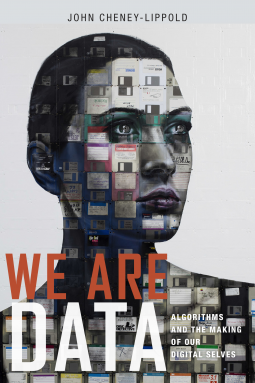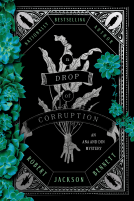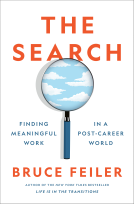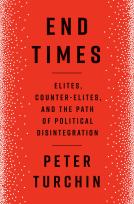
We Are Data
Algorithms and the Making of Our Digital Selves
by John Cheney-Lippold
This title was previously available on NetGalley and is now archived.
Send NetGalley books directly to your Kindle or Kindle app
1
To read on a Kindle or Kindle app, please add kindle@netgalley.com as an approved email address to receive files in your Amazon account. Click here for step-by-step instructions.
2
Also find your Kindle email address within your Amazon account, and enter it here.
Pub Date May 02 2017 | Archive Date Jul 14 2017
Description
What identity means in an algorithmic age: how it works, how our lives are controlled by it, and how we can resist it
Algorithms are everywhere, organizing the near limitless data that exists in our world. Derived from our every search, like, click, and purchase, algorithms determine the news we get, the ads we see, the information accessible to us and even who our friends are. These complex configurations not only form knowledge and social relationships in the digital and physical world, but also determine who we are and who we can be, both on and offline.
Algorithms create and recreate us, using our data to assign and reassign our gender, race, sexuality, and citizenship status. They can recognize us as celebrities or mark us as terrorists. In this era of ubiquitous surveillance, contemporary data collection entails more than gathering information about us. Entities like Google, Facebook, and the NSA also decide what that information means, constructing our worlds and the identities we inhabit in the process. We have little control over who we algorithmically are. Our identities are made useful not for us—but for someone else.
Through a series of entertaining and engaging examples, John Cheney-Lippold draws on the social constructions of identity to advance a new understanding of our algorithmic identities. We Are Data will educate and inspire readers who want to wrest back some freedom in our increasingly surveilled and algorithmically-constructed world.
Advance Praise
“We Are Data spells out the implications of being made of data in the digital age: our new ‘algorithmic identity.’ John Cheney-Lippold shows how algorithmic logics that undergird the architecture, regulation, monetization, and uses of the Internet have changed the nature of human experience and identity. Through witty and accessible examples, he eloquently lays out the social and political consequences of transcoding lived identity into measurable types in our new world. Clearly written, carefully researched, timely and intelligent, We Are Data is a compelling and much-needed book.”
—Alexandra Juhasz, Chair, Film Department, Brooklyn College
Available Editions
| EDITION | Other Format |
| ISBN | 9781479857593 |
| PRICE | $89.00 (USD) |
| PAGES | 320 |
Links
Featured Reviews
 Pamela K, Reviewer
Pamela K, Reviewer
So interesting. I haven't thought about our digital data trace, but I do now!
 Sara P, Reviewer
Sara P, Reviewer
Inquietante viaggio nella realtà di Internet - il mare in cui ci immergiamo, sereni e ignari, ogni giorno, senza sapere che cosa cediamo in cambio di intrattenimento e informazioni.
 Lucy W, Reviewer
Lucy W, Reviewer
Well, it’s not often that I hate and love a book in equal measure – but that’s what happened with We Are Data. On the one hand, it’s a completely fascinating, sometimes scary and often unbelievable text but on the other it’s super dry, technical and complicated. I suspect it was conceived from the embers of a Ph.D thesis – and as someone who was forced to review their partners Ph.D write up let me tell you, those things are no fun to read.
The book looks at data in the modern world – how it is created, stored, captured by third parties, analysed and ultimately put to use. That sounds quite abstract, but when you realise that the data we’re talking about is the stuff you create yourself by searching the web, using social media, reading a blog…yeah, the fact that you’re reading this right now means that you’ve left a data trail that someone, somewhere is recording. Now you’re interested, right? Maybe a little creeped out? That’s how I felt for pretty much the entirety of the book.
Because We Are Data focuses on the information created at an individual level, it suddenly makes it much more relevant to real life. For example, did you know that just by owning a mobile phone (even one that’s turned off), you create data through it’s inbuilt GPS? And that not only will your movements be tracked by your phone company, they will also know who you spend time with in real life (through your proximity to other mobile phones)? If you use a smartphone or computer, your data will also include who you talk to (via calls and texts), who you’re friends with (via social media like Facebook), what your interests are (via your web searches), where you work (via phone GPS co-ordinates and logging on to certain sites from your unique IP address during working hours) etc. Basically, everything we do digitally is monitored at some level, and is used to infer all kinds of things about us as individuals. If you don’t believe me, or think this sounds a bit far-fetched (and you have a Google/Gmail account) you can read who Google think you are by going to http://www.google.com/ads/preferences. This information hasn’t been volunteered by you – it’s been discerned by algorithms using the data the company has logged about you from your online activity. Pretty scary stuff, right?
We Are Data explores how analysis of the metadata of daily life can be algorithmically interpreted to deduce “facts” about us (gender, age, socio-economic background, income, education level etc.) and how that impacts on us. This can be seemingly innocuous, such as Facebook placing adverts in our news feeds targeted to what it believes our interests are to the utterly terrifying actions of the US military sending drone strikes to kill individuals based purely on the data they have created. I know this is all starting to sound like a dystopian fantasy novel or a crackpot conspiracy theory, but We Are Data is meticulously researched and referenced. Big Brother really is watching.
Personally, I found the information contained within We Are Data to be completely fascinating BUT it does read like a textbook. There are so many technical phrases and bits of theory used that I can easily see the book being used as a core text for a number of degree programmes, in everything from Sociology to Technology. It’s not light reading, it definitely would only appeal to a small number of people and if you’re not used to reading scholarly articles then you’ll find it a total slog to get through – but there was just enough mind blowing research contained within the pages to keep me reading to the end (well, not quite the end, as the last 15% is references). If dataveillance is your thing then you’ll love it.
Readers who liked this book also liked:
John Kotter; Holger Rathgeber
Business, Leadership, Finance, Nonfiction (Adult)


















